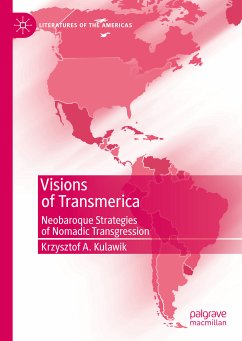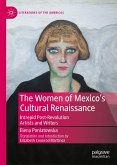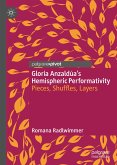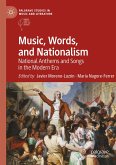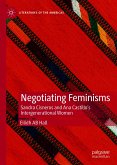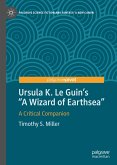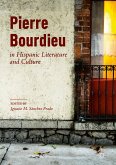-Diane E. Marting, Professor of Spanish, University of Mississippi, USA
"Visions of Transamerica addresses Neobaroque ideology and aesthetics in several potential contexts: personal, social, cultural, political, and sexual. Professor Kulawik's focus is on Latin America, but his discussion is useful in all cultural and artistic contexts where new modes of identities are sought and desired."
-Lois Parkinson Zamora, Moores Professor of English, University of Houston, USA
"Kulawik's informed and insightful discussion of the Neobaroque, gender, and the body is one of few studies in English on the complex topic of destabilized identities. His study makes a significant contribution to the wider field of global gender studies."
-M. Elizabeth Ginway, Professor of Spanish-Portuguese Studies, University of Florida, USA
This book looks at Neobaroque Latin American fiction, essay, and performance from the 1970s to the early 2000s to explore the cultural hybridization and transgressive identity transformations at play in artistic works. It explains their ornamental style and boldly experimental techniques as effective strategies in presenting decentered (nomadic) identities in sexually ambiguous, multiethnic, interracial, transcultural, mutant characters and metafictional narrators. Transmerica demonstrates Neobaroque's potential to destabilize normative, essentialist, and binary categories of identity. The study focuses on Latin America as a cultural macro-region and portrays examples from various countries. Drawing on gender, queer, trans, and Chicana feminist theory, it argues for an alternative approach to selfhood through border crossing and otherness derived from the transgressive exuberance of the Neobaroque.
Krzysztof A. Kulawik is Professor of Spanish and Portuguese, and Latin American Literature and Culture at Central Michigan University, USA. He is the author of Travestismo lingüístico: el enmascaramiento de la identidad sexual en la narrativa latinoamericana neobarroca [Linguistic Cross-Dressing: The Disguising of Sexual Identity in Latin American Neobaroque] (2009).
Dieser Download kann aus rechtlichen Gründen nur mit Rechnungsadresse in A, B, BG, CY, CZ, D, DK, EW, E, FIN, F, GR, HR, H, IRL, I, LT, L, LR, M, NL, PL, P, R, S, SLO, SK ausgeliefert werden.

